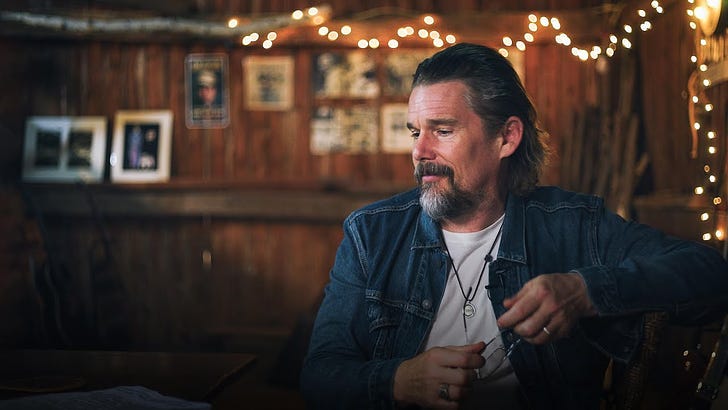Two weeks ago, many of our finest directors wrote a joint letter to Congressional leaders imploring them not to overlook movie theaters when crafting a second COVID-19 relief bill. The situation was dire, they warned. Without help, many theaters would not survive. The letter came months after Christopher Nolan, in March, wrote an op-ed in The Washington Post making the case for why movie theaters are an essential part of American life.
Both letters made me sad. We’ve all lost, and continue to lose, so much this year. Some much more than others. Our sense of despair is both specific and not, directed at the latest outrage in the news and at the overall state of everything, everywhere. Amid such global despair, it might seem inappropriate to dwell on the fate of cinema.
Yet I dwell. Not so much on the fate of cinema relative to the fate of any other industry, but about the fate of cinema, and of art, in general. I dwell specifically on the word “essential.” In a time when “essential work” includes rock-bottom concerns such as healthcare and the production of food, how “essential” is art?
I think we all understand that, on some level, art is “important,” that it helps us share and interpret the joys and sorrows of life with other people. We know that it’s “inevitable,” that it’ll always be made by someone, somewhere. But how deeply have we considered its essentiality? What does it mean for art to be not just important or inevitable, but essential?
As I was contemplating this question over the past few months, I came across this virtual TED Talk by the ever-wise Ethan Hawke. It’s worth watching the whole thing, but this part stood out to me the most:
That’s when art’s not a luxury; it’s actually sustenance. We need it. Okay. Well, what is it? Human creativity is nature manifest in us.
That last bit, in particular — “nature manifest in us” — rhymes with some of my own thinking about art. If human creativity is nature manifest in us, then “art” is what results from the application of that manifestation, from the application of our innate chaos and miraculousness.
In other words, art is the expression of human will. It’s anything on the other side of volition. It’s your paintings, it’s your scribblings, it’s the positioning of your trash can. It’s the way she talks. It’s the fact that you love her. It’s anything that need not be, but is. Anything that lies on the road taken, made artful by the fact that, through the thick woods, there lie the many roads that were not.
To the extent that you’re a believer, art can also be the result of divine will. That is to say, did the mountains need to be? Did the rivers, the clouds, the stars? Are they the result of some divine will, or merely the fruits of dispassionate entropy and chaos? To the believer, the mountains may constitute art. To the non-believer, the mountains in themselves are not art, but a stage. The art is what we, as willful creatures, do upon the mountains.
In either case, art viewed as the product of will is not merely important; it is essential. It is not just a byproduct of life, but also the substance of it. It’s not simply something we “turn to” when seeking comfort. In a very real way, it’s something that all of us, always, are capable of creating. In fact, we, so long as we are, can’t help but create it.
So what?
Perhaps this is all too abstract for your taste. My goal here is not to suddenly rouse you into painting the next Mona Lisa. It’s only to explore out loud why art is, in fact, essential. Because it’s enormously consequential that it is.
Why?
Well, when we understand that art is not a luxury produced by someone, somewhere, but rather is located within us — when we think of our own expressed intentions, however mundane, as necessarily artful — perhaps we might renew our appreciation of the artfulness of The Other. Perhaps we might choose to defend that artfulness against the failure of politics and the temporary victory of dishonorable intentions. And, when the time comes, perhaps we might rush back to the theaters, museums and concert halls with the same urgency as we create breath from air.




